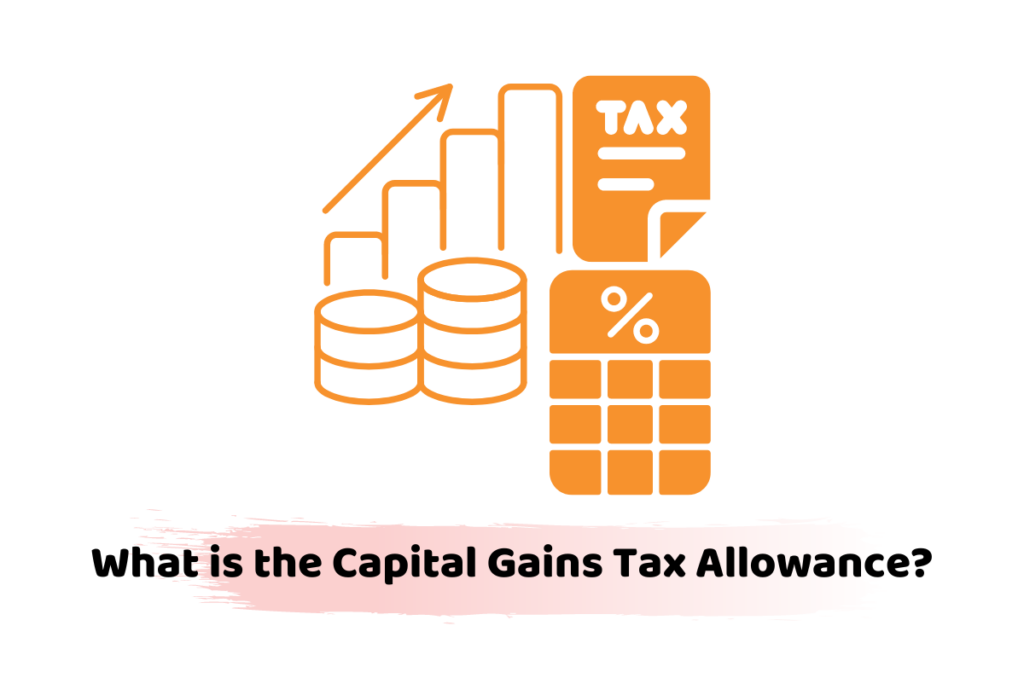Wondering what is the capital gains tax allowance? The capital gains tax allowance is a crucial aspect of the UK tax system for individuals and businesses who sell their capital assets. Such as investments, property, and shares. In the UK, the tax-free amount that individuals and businesses can realise from the sale of their assets without paying capital gains tax on the gain.
The capital gains tax allowance is revised annually by the UK government and has been subject to several changes in recent years. Understanding the capital gains tax allowance and how it works is critical for taxpayers to ensure they comply with the law. This will lead to making the most of their assets while avoiding penalties or interest charges.
Get in touch with one of our experts to learn more about capital gains tax allowance. We are available from 9:00 am to 05:30 pm Monday to Friday.
What is Capital Gains Tax Allowance?
The capital gains tax allowance is a tax-free amount for individuals and businesses who sell their assets. Such as investments, property, and shares. The capital gains tax allowance is set annually by the UK government and revisions to the allowance can have a significant impact on individuals and businesses. This is for those who are selling their assets.
For instance, a reduction in the capital gains tax allowance can result in more gains being subject to tax. An increase in the capital gains tax liability for the taxpayer. Individuals and businesses need to keep track of their capital gains tax allowance and any changes.
It is to ensure they are meeting their legal obligations and making the most of their assets while avoiding penalties or interest charges. Taxpayers must understand how the allowance applies to their specific circumstances. Ensure they are claiming any reliefs correctly and accurately.
What Does this Mean for Investors?
After knowing what is the capital gains tax allowance, the capital gains tax allowance can certainly have significant implications for investors when they sell their assets. The capital gains tax allowance is the tax-free amount that individuals and businesses can realise from the sale of their assets without paying capital gains tax on the gain.
The allowance is a crucial consideration for investors who are selling their investments, such as shares and want to minimise their tax liability. In addition to the capital gains tax allowance, there are several other tax rules. Investors may need to take into account when selling their investments.
For example, investors may need to pay income tax on any dividends they have received from their investments and may be subject to other taxes. Such as inheritance tax or stamp duty, depending on their specific circumstances.
Things to Remember About the Capital Gains Tax Allowance
There are several things to keep in mind when it comes to the what is capital gains tax allowance in the UK:
1. Annual Allowance: The annual allowance is the maximum amount of income that an individual or business can realise from the sale of assets before capital gains tax becomes due.
2. Tax-Exempt Assets: Specific assets are exempt from capital gains tax, such as shares in personal pension schemes and individual savings accounts.
3. Tax Relief: There are various reliefs available to individuals and businesses that can reduce their capital gains tax liability. Such as the entrepreneurs’ relief, the farmers’ relief, and the traders’ relief.
Individuals and businesses need to remember that the rules surrounding capital gains tax can be complex and may be subject to changes in legislation.
What Happens if I Make a Loss?
After having a basic idea of what is capital gains tax allowance, it’s important to note that Capital Loss Relief is subject to certain limitations. These are discussed in the following:
- Capital Loss Relief can only be claimed in the same tax year in which the losses were incurred.
- On losses up to £2,000 can be carried forward to the next tax year if not used.
- Beyond £2,000 can only be used to offset any subsequent capital gains in the same tax year.
- It can only be claimed on UK-taxable gains.
- It is available to individuals and businesses, including companies with share capital.
- Capital Loss Relief is not available on shares held in a personal shareholder investment account, as these are tax-free.
In the UK, it is essential to keep accurate records and receipts to support any capital losses you may claim on your tax returns. Seek professional advice from an accountant or financial advisor to ensure the relief is claimed correctly and accurately.
The Bottom Line
To conclude the discussion on what is the capital gains tax allowance, we can say that the capital gains tax allowance in the UK is an important matter for taxpayers. This is to be considered when disposing of assets. This allowance can help individuals and businesses reduce their capital gains tax liability.
In addition to this, it’s essential to be aware of other potential tax obligations. This may arise from the sale of assets, such as capital gains tax, income tax, and stamp duty. It’s important to seek professional advice from an accountant or financial advisor when preparing your tax returns.
Failure to declare capital gains or other tax obligations can result in penalties and interest charges. By understanding the capital gains tax allowance and other relevant laws, individuals and businesses can ensure they make the most of their assets.
Reach out to our expert professionals to get your queries answered instantly. We will love to come up with the best possible solutions to your queries.
Disclaimer: The information about capital gains tax allowance is provided in this article including text and graphics. It does not intend to disregard any of the professional advice.





















































